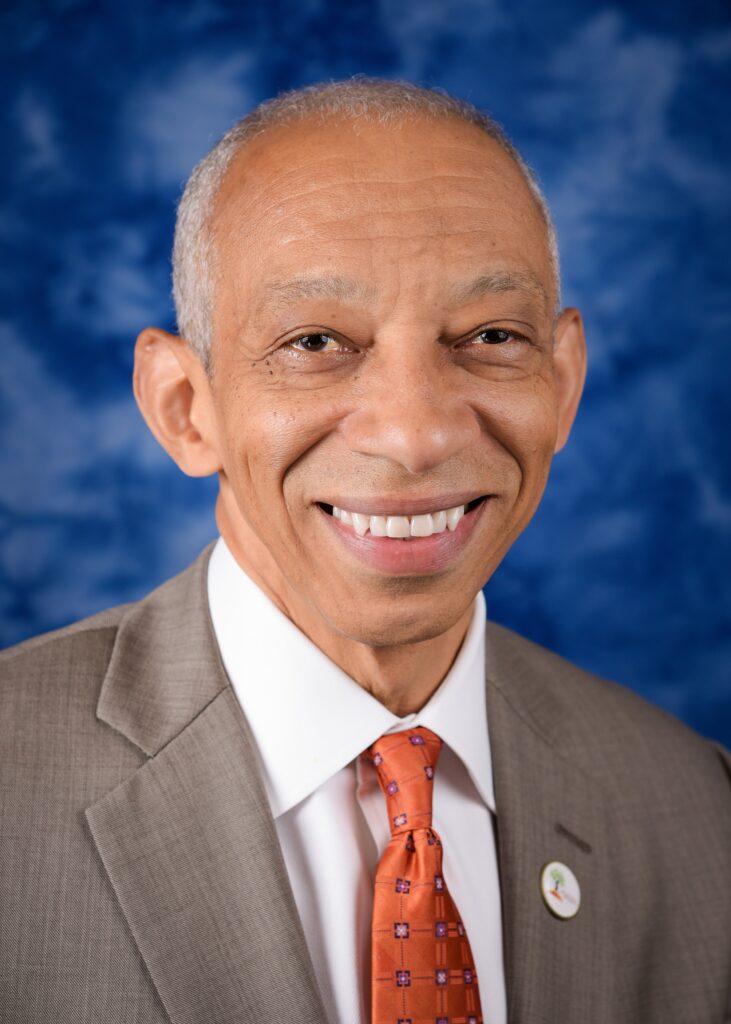 Eliza Bryant Village is a nonprofit that provides services for seniors – including nursing home facilities, affordable independent living, adult day care, and outreach programs including transportation and meals. The 125-year-old agency is the oldest continually operating African American-founded long-term care facility in the United States. It serves more than 1,000 seniors annually with nearly than 200 employees and approximately 300 volunteers.
Eliza Bryant Village is a nonprofit that provides services for seniors – including nursing home facilities, affordable independent living, adult day care, and outreach programs including transportation and meals. The 125-year-old agency is the oldest continually operating African American-founded long-term care facility in the United States. It serves more than 1,000 seniors annually with nearly than 200 employees and approximately 300 volunteers.
IFF sat down with President & CEO Danny Williams to learn more about how the organization is responding to COVID-19 and how the Paycheck Protection Program (PPP) may help them through this moment in history.
IFF: How did COVID-19 and the related shutdowns affect your organization?
Williams: As you’ve probably read in the news, nursing homes have been the epicenter of the impact of the corona virus. The majority of the fatalities have occurred in long-term care settings, which, if you stop to think about it, makes sense because we care for some of the sickest and most vulnerable in our society. We were caring for a lot of folks who were already on the brink – and then this virus pushed them over the edge.
We were caring for a lot of folks who were already on the brink – and then this virus pushed them over the edge.
Then the stress from being exposed to increased illness and death really impacted our ability to retain adequate staff. Because of our funding sources, we are often unable to pay competitive salaries. That is something we are working to address. When you add to that equation people’s concern about their own health, it’s made it more difficult to attract and keep critical staff members.
We’ve also had to discontinue certain programming, which resulted in significant revenue losses. One major example is our adult daycare program. Normally, this program allows families to bring their loved ones to us for a period of time during the day so they can work or take care of other important family obligations. But the statewide COVID guidelines prevented those kinds of gatherings for now.
Finally, our actual nursing home population has decreased by about a quarter as people became more reluctant to put themselves in a setting where they’re going to be exposed to others who are at high risk of contracting the virus.
IFF: Why did you decide to pursue a PPP loan, and how do you think it will help your agency?
This was a really critical resource for us to be able to maintain a consistent and high-quality workforce.
IFF: What was your experience like in getting the PPP loan?
Williams: We started with a bank where we had been doing regular business. We found that the response time was not what we had hoped for. Banks have a lot of customers, and who knows how they prioritized which customers to work with first. But the bottom line was that the initial funding was depleted before our loan ever got into the pipeline.
As it turns out, our volunteer Board chair was aware of IFF’s program and recommended that we utilize your services when the second tranche of funding was released. We found that to be outstanding advice. We couldn’t have been more pleased with the kind of professional courtesy, prompt turn around and, ultimately, outstanding result that we received in working through IFF. And I referred IFF to at least 1-2 other sources, and they reported a similar experience.
IFF: What’s one thing you’ve learned in this climate?
Williams: One thing that’s been reinforced is that, as a country, we respond very well to immediate crises. But, we don’t always find the same level of energy to deal with structural issues that perpetuate inequities once that crisis has subsided.
For example, I mentioned earlier that this virus tends to pick off the weakest among us. That’s something that we were called on to mitigate, and people have worked hard to rise to the occasion. But, once the crisis subsidies, I’m not convinced we’ll have the same appetite to deal with structural problems that created that unevenness in society – created the weaknesses in certain communities that make them more susceptible to being hurt in these conditions. I’d love it if we could keep this same energy alive to deal with health disparities that have been chronic in our society for many decades.
What comes in short supply when you’re outside of a crisis is empathy. You’ll hear someone start to get concerned about an issue when it is happening to someone close to them or to someone who looks like them, but it’s harder for people to have empathy for people and communities that they don’t have some natural affinity for.
What comes in short supply when you’re outside of a crisis is empathy. You’ll hear someone start to get concerned about an issue when it is happening to someone close to them or to someone who looks like them, but it’s harder for people to have empathy for people and communities that they don’t have some natural affinity for.